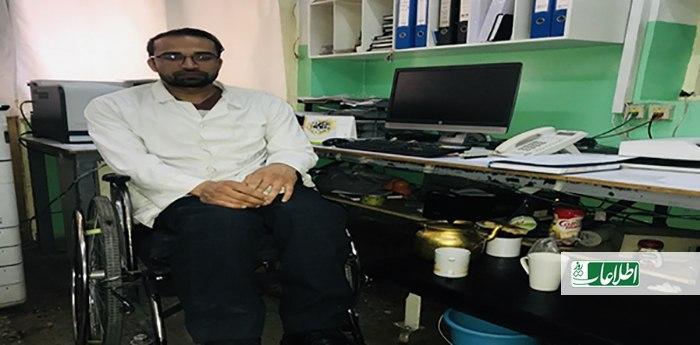“Now, I see some persons with disabilities who can walk while before they even could not stand on their feet. I’m happy and it brings me comfort,” says Doctor Mallang, caretaker of the home care team of the International Red Cross Committee (ICRC) in Kabul. According to him, providing home care services for the Persons with Disabilities (PWDs) was very difficult when he started as he would often see nightmares after a long struggle to sleep.
Well-esteemed Mallang and his three colleagues are now known as “life saviours” among Kabul PWDs community. The home care team was established within ICRC Afghanistan office around 20 years ago and the staffs have provided training, treatment, and counselling services for Afghans who have been seriously harmed in the war and other fatal incidents since then. The home care staffs visited PWDs and their families 6,369 times since 2019. They treated 2,081 people who had serious spinal cord injuries and taught their families how to care for them.

Moreover, as Mallang states, the ICRC home care teams have also empowered PWDs financially providing micro-loans for those who have entrepreneurship concepts.
Life for PWDs is a daily ordeal in Afghanistan. Of many challenges they are facing indoor and outdoor, discrimination, lack of employment opportunity, and the government’s ignorance are just few examples.
The home care is more focused on the PWDs whose spinal cord are harmed or those patients with no ability to stand and move on their feet. “We provide education for the 7th and 8th grade school students who are disabled. Our teachers go to houses of PWDs who cannot move and teach them,” Mallang noted, adding that the PWDs with higher level of disability are prioritized.
According to him, a total of 425 PWDs who are all victims of war and violence have benefited the ICRC’s micro-loans.
“It was for my family’s efforts and that of the ICRC’s home care team that I can walk now”
The ongoing war has left a large number of Afghans with physical disabilities. Figures provided by the ICRC Afghanistan office suggest that more than one million people are suffering from different kind of disabilities in the country with 10,000 new PWDs registered on annual basis. The ICRC office detailed that more than 29,000 people have lost a part of their bodies as the result of mine and IED blasts.
How did a paralyzed man regain his working ability?
Eagerly working while sitting on his wheelchair, Fahim expressed extreme happiness of regaining his ability to work. Of 20 years passed with disability, he was completely paralyzed for five years and was unable to stand on his feet. As retold, Fahim gained hope when his father spoke of the ICRC’s home care team and a possible visit of the team with Fahim. “It was for my family’s efforts and that of the ICRC’s home care team that I can walk now. It’s almost impossible for the disabled people to be employed in Afghanistan,” Fahim told while sitting behind his work bench.
Fahim got a serious injury on his spinal cord when an unexploded ordnance went off among the children then playing in his neighborhood in Macroyan Kohna around 20 years ago. The incident cost him too much as he couldn’t continue his school studies since then. “I stopped my lesson after the blast and I lost my hope gradually.”
After a partial recovery thanks to home care provided by the ICRC team, Fahim was hired with the committee as an employee which, he believes, has changed public way of looking towards him. According to ICRC authorities, 99 percent of the organization employees are PWDs.
In addition to work, Fahim has succeeded in fulfillment of another dream which the explosion had taken from him: education. He is a school graduate and currently studying his last year at university. “I want people change their mindsets towards disabled community and avoid humiliating them,” Fahim, who is impatiently waiting to be graduated from university, noted.




